The Deerbrook Surgery NHS GP Doctors
Opening Times | Register Online with GP | Contact Us
CQC Rating GoodChildhood Vaccinations
We know that vaccines can be topical and therefore we want to provide you with the best information to enable you to decide how you want to proceed with protecting your children's health. We will provide you with information and impartial data showing you why vaccination is one of the most important things that a parent can do for their child. Ideally, children should have their jabs at the right age to protect them as early as possible and minimise the risk of infection.
If you are happy to have your child vaccinated as per the NHS and Public health guidance, please click below to view the schedule of immunisation. If you feel you need more information about why vaccinations are needed and the evidence for how they have prevented death and disease, please scroll down for more detailed information.

NHS Childhood Vaccination schedule
I'm still not sure and want to know more about vaccinations
-
The main primary immunisations consist of vaccination against Diphtheria, Tetanus, Polio, Pertussis (known as Whooping Cough) and Hepatitis B
-
There are additional vaccinations against Meningitis B & C, Haemophilus, Rotavirus and Pneumococcal disease
-
At a year old, there are vaccinations introduced against Measles, Mumps and Rubella
-
The information below gives further details about vaccinations and their importance
Measles, Mumps and Rubella
Measles is often a deadly disease. It can cause encephalitis (swelling of the brain) and result in permanent disability or death.
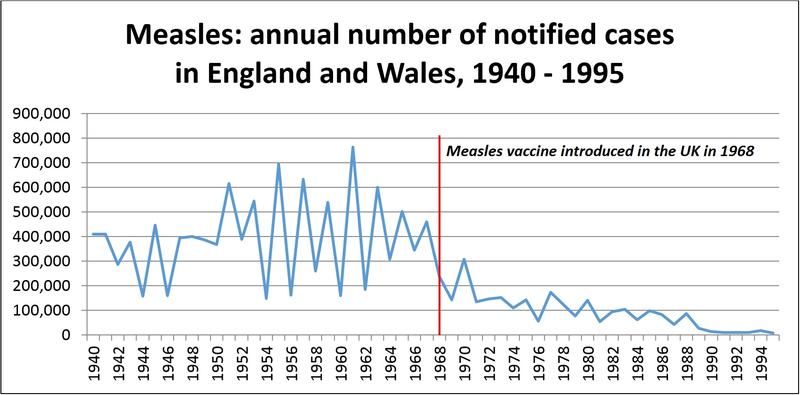
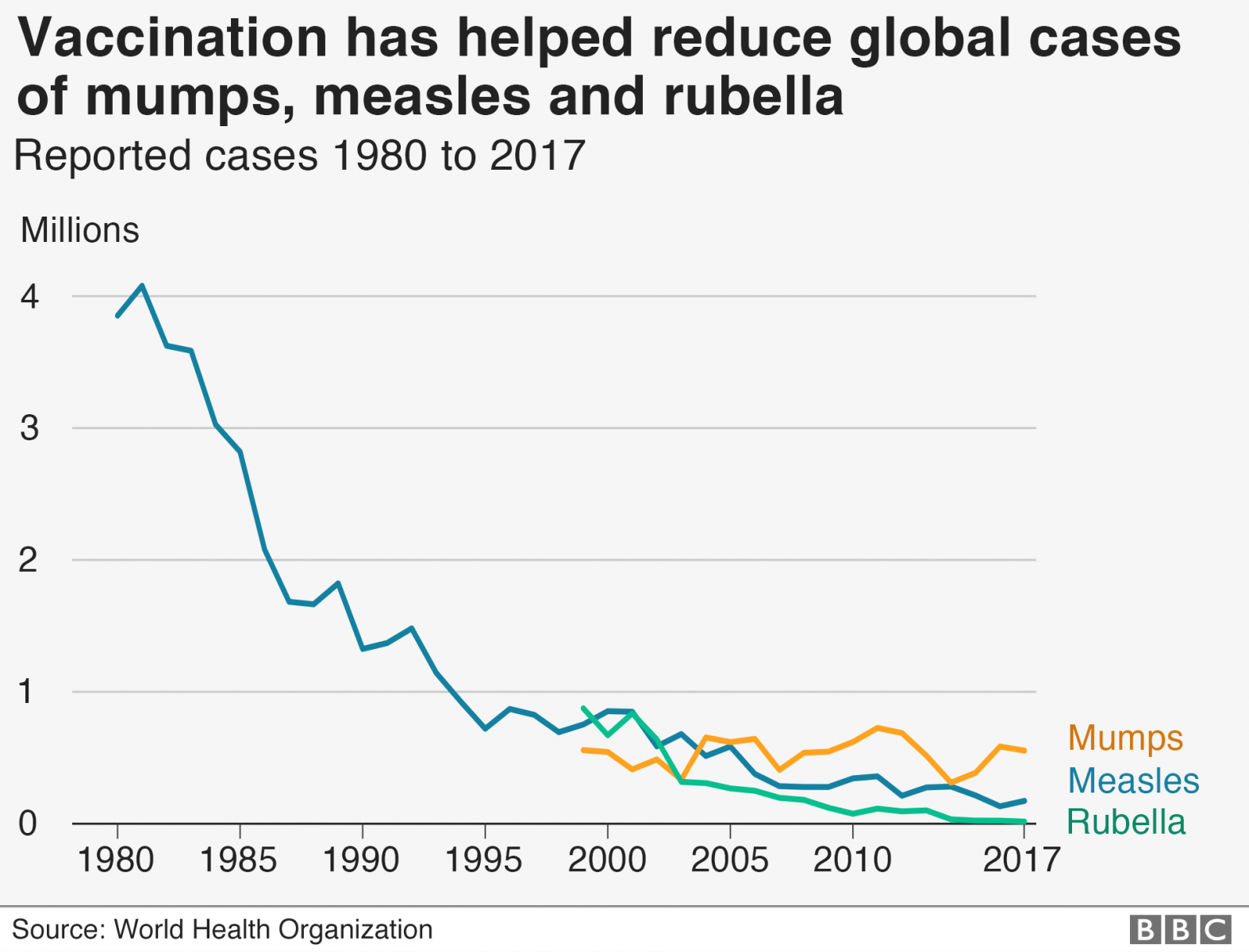
There are multiple accounts of people that are living with the effects of complications from measles encephalitis. Measles is highly infections and the only reason why we don't see multiple deaths in society today is due to vaccination.
The graph on the left shows how cases of measles dropped substantially after the introduction of a vaccine. However, due to reduced numbers of people taking up the vaccine, measles is re-emerging and it is likely we will see increased numbers of young children dying or becoming permanently disabled in the near future.
The famous author Roald Dahl lost his daughter due to a measles encephalitis. This was prior to the widespread introduction of a vaccine. He writes about his account here.
Please see the video below about how measles infection can impact someone's life.
Polio
As a result of a mass vaccination drive from the 1970s onwards, Polio has almost disappeared worldwide. It will not stay away if we stop vaccinating our children. Just because you don't see cases of Polio amongst friends and families, it doesn't mean it's not a grave risk. The reason for low numbers of cases is due to the world taking up vaccination in large numbers.
Polio can replicate in the nervous system and can result in causing lifelong paralysis. If infection is severe (which can easily happen in unvaccinated cases) it can result in meningitis and death.
Source: The Vaccine Knowledge Project, University of Oxford
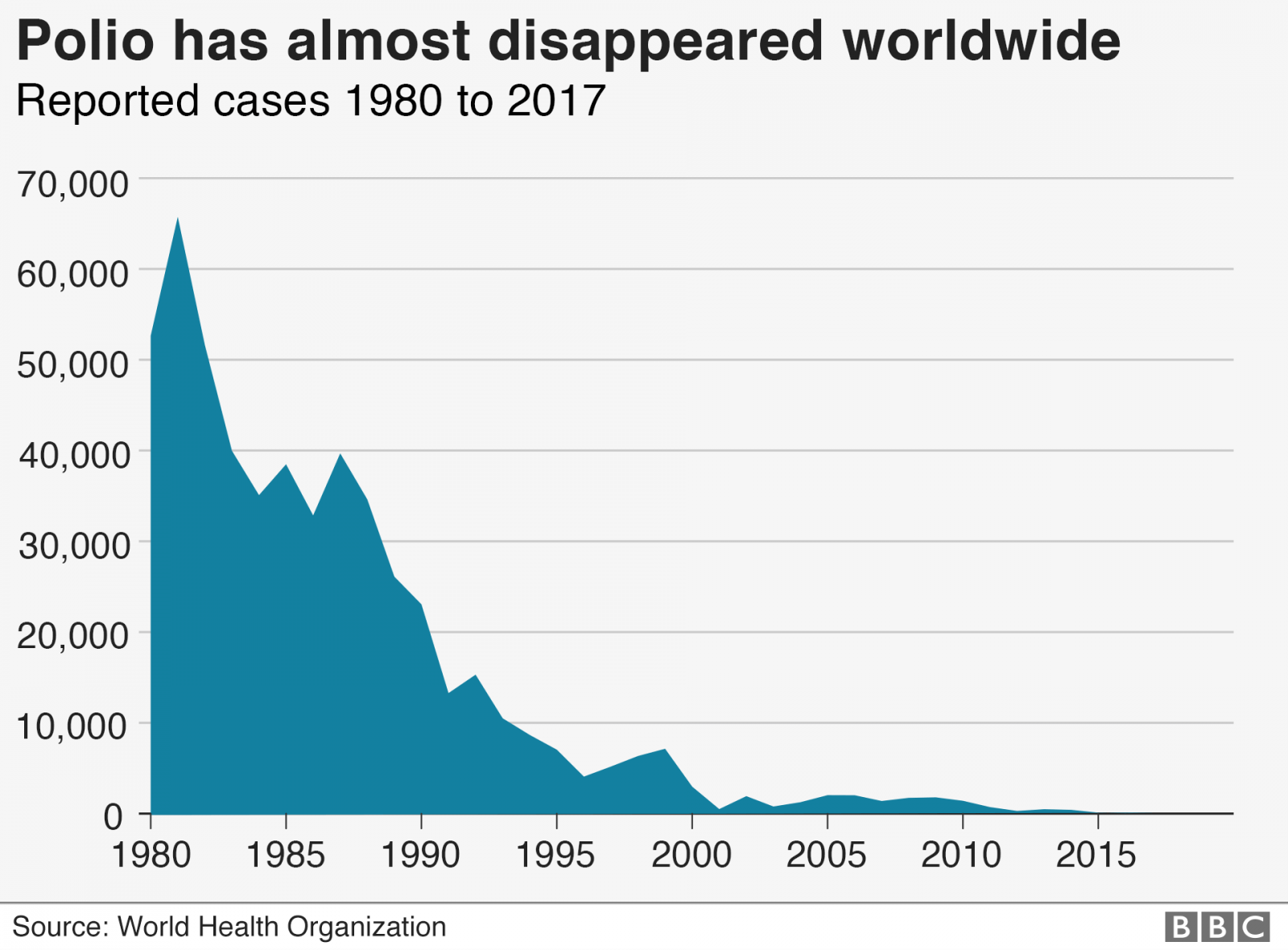
Diphtheria
Diphtheria caused many deaths worldwide prior to the introduction of the vaccine. Prior to the introduction of the vaccine, there would be more than 5000 deaths each year. This reduced to almost zero since th 1950s when vaccination become routine.
Although you are likely to not know anyone with diphtheria or not see any cases, this doesn't mean your child is not at risk. The reason for low case is because vaccination has been so widespread for so long that these diseases have been successfuly supressed.
Should we now not cover our children with vaccination, these diseases will re-emerge and we may start to see young children being hospitalised with these preventable infections. Should the level of population vaccination reduce below a certain level, we may get epidemics. At this point, many children will be at risk of dying from these preventable illnesses.
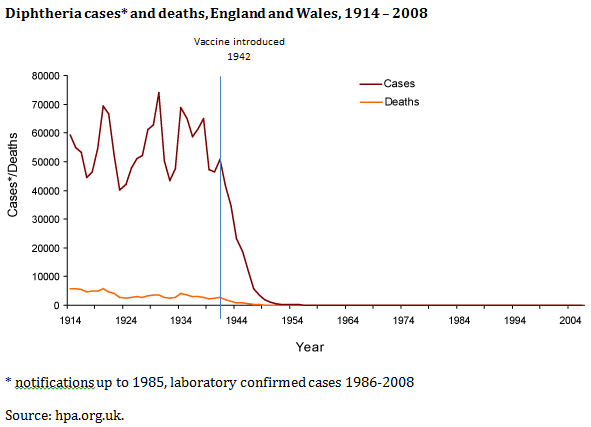
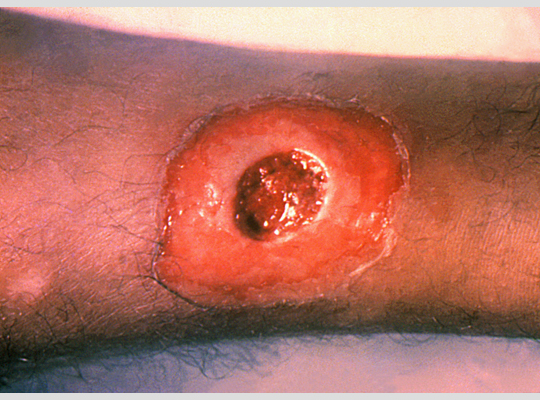
CDC - Public Health Image Library, ID#:1941 (direct link: http://phil.cdc.gov/PHIL_Images/03312002/00001/PHIL_1941_lores.jpg)
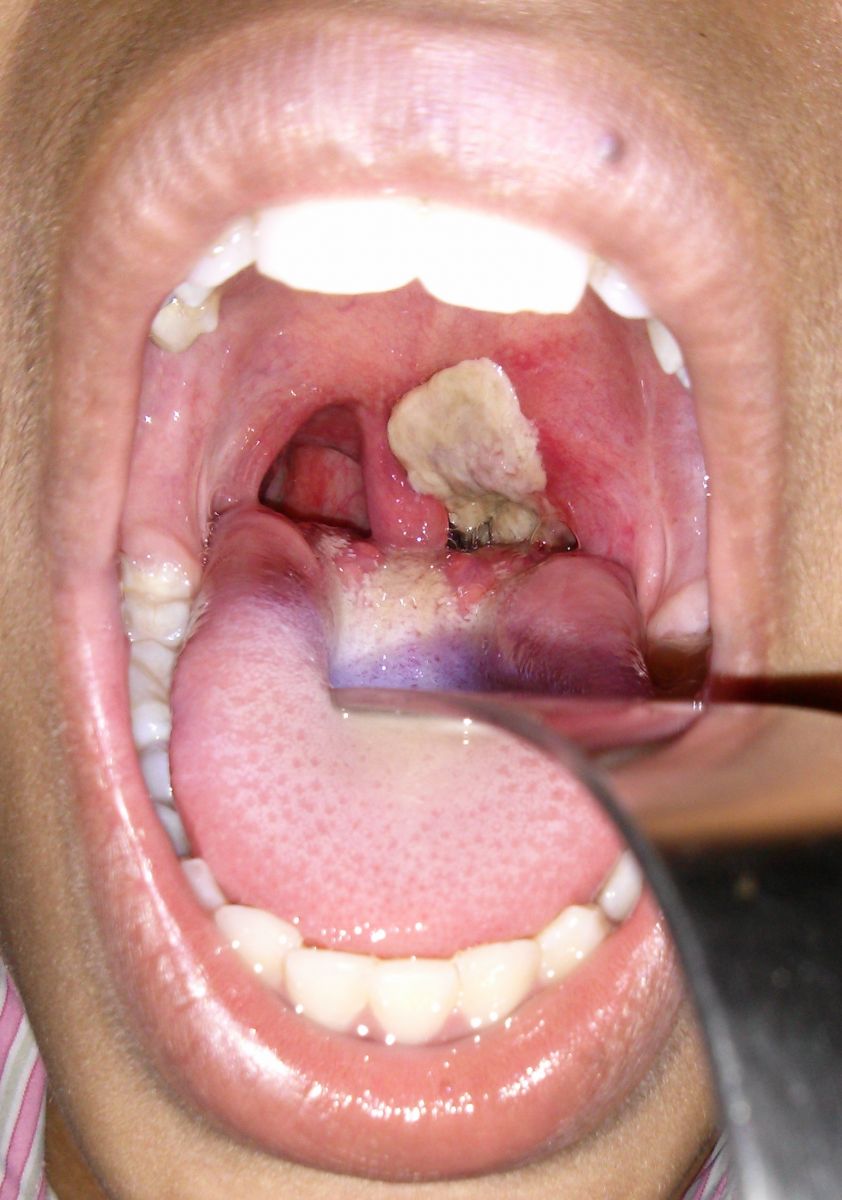
https://creativecommons.org/licenses/by-sa/3.0/
The most comprehensive resource for vaccinations in the UK is the Vaccine Knowledge Project at the University of Oxford. This information is impartial and independant of the government and is very useful to understand more about how vaccines work and why they are so important. Click here to access their site.
To find out more about how the MMR vaccine became so controversial, read about Andrew Wakefield on Wikipedia. There is also a useful summary about how his false research misled so many and caused children to suffer terribly. Click here for the article in the British Journal of General Practice.
We use cookies to help provide you with the best possible online experience.
By using this site, you agree that we may store and access cookies on your device. Cookie policy.
Cookie settings.
Functional Cookies
Functional Cookies are enabled by default at all times so that we can save your preferences for cookie settings and ensure site works and delivers best experience.
3rd Party Cookies
This website uses Google Analytics to collect anonymous information such as the number of visitors to the site, and the most popular pages.
Keeping this cookie enabled helps us to improve our website.
